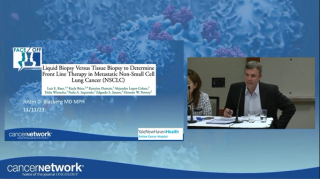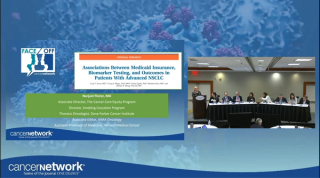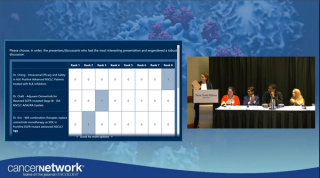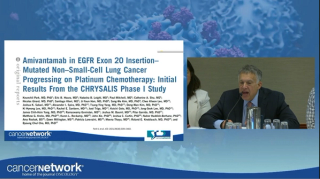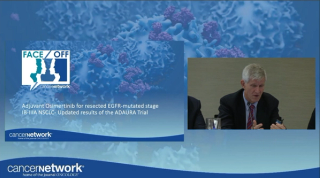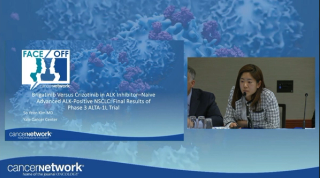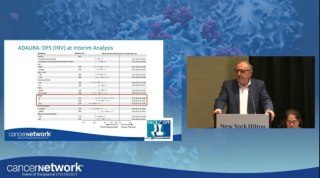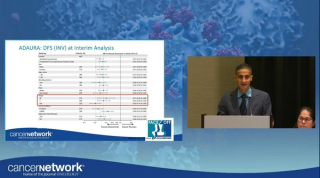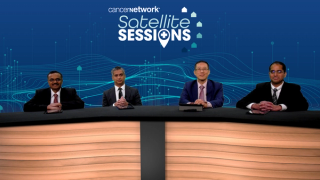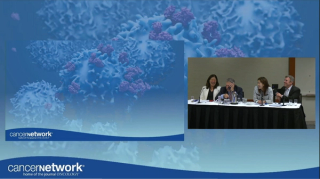
Lung Cancer
Latest News

Latest Videos

CME Content
More News
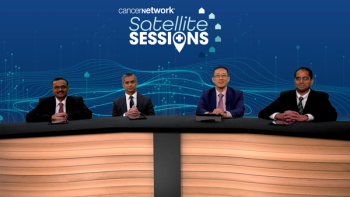
Krishna Reddy, MD, PhD, explores the roles of sequential and concurrent chemoradiotherapy (sCRT and cCRT) in patients with unresectable stage III NSCLC, delving into considerations for selecting between the two approaches and examining potential variations in treatment based on factors such as age, performance status (PS), or comorbidities.

Gregory Gan, MD, briefly outlines the available treatment strategies for stage III unresectable NSCLC, and Alykhan Nagji, MD explores the characterization of patients with unresectable stage III NSCLC, underscoring the crucial role of accurate staging in guiding treatment decisions.

Oncology experts from the University of Kansas discuss treatment strategies for both resectable and unresectable non-small cell lung cancer (NSCLC) following progression on adjuvant immunotherapy, providing valuable insights into navigating the challenges posed by this evolving clinical scenario.

An overview of NRG1 fusion–positive tumors was given by experts in the gastrointestinal and lung cancer space in a recent Frontline Forum.

Vinay Raja, MD, explores the crucial role of adjuvant immunotherapy in resectable stage III NSCLC, providing insights into patient selection criteria, considerations for choosing among available treatment options, and the impact of recent trial data updates on informing treatment decisions in this evolving therapeutic landscape.

Oncology experts from the University of Kansas discuss the evolving role of neoadjuvant/perioperative immunotherapy in resectable stage-III NSCLC, analyzing recent trial data and addressing the nuanced factors that inform their decisions between neoadjuvant and perioperative treatments in clinical practice.

Alykhan Nagji, MD, provides an overview of the institutional approach to determining eligibility for surgical resection, delving into the pivotal role of the multidisciplinary tumor board in the decision-making process and exploring the crucial factors that must be considered when evaluating resectability.

Misako Nagasaka, MD, PhD, sheds light on neoadjuvant and adjuvant treatment options for patients with lung cancer.

During the European Society for Medical Oncology 2023, experts discussed updated results in key trials across the lung cancer space.
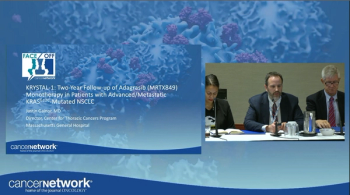
A review of adagrasib in the KRYSTAL-1 trial in patients with NSCLC.
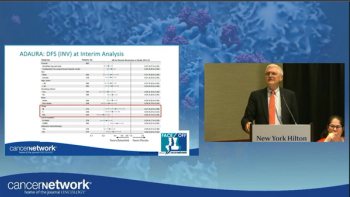
Osimertinib monotherapy as the standard of treatment for frontline EGFR mutant advanced NSCLC will be replaced by combination therapies.
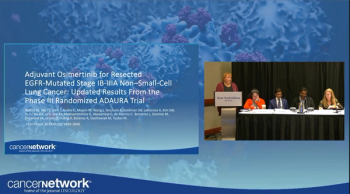
EGFR-mutated stage IB-IIIA non-small cell lung carcinoma that has been removed and treated with adjuvant osimertinib.
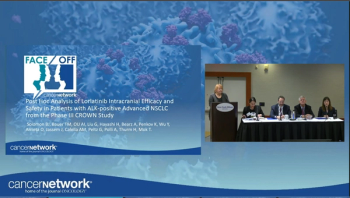
A discussion on the Post Hoc Analysis of Lorlatinib Intracranial Efficacy and Safety in Patients with ALK Positive Advanced NSCLC: Phase III CROWN Study
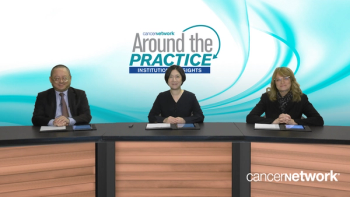
The panelists close their discussion on non-small cell lung cancer by emphasizing the need for continued research, early screening, and collaboration with dermatologists to address the unmet needs and improve overall outcomes.
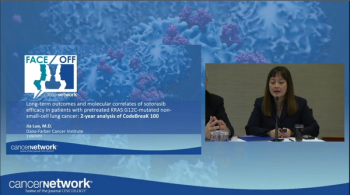
The outcomes of the use of Sotorasib in patients with pretreated KRAS G12C mutated NSCLC.
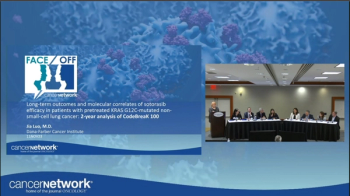
Highlight on the debate format, speakers, and direction to support the discussion.
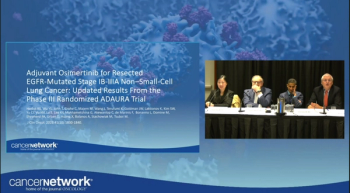
Results of phase 3 ALTA-1L study comparing crizotinib with Brigatinib in advanced ALK-positive non-small cell lung cancer
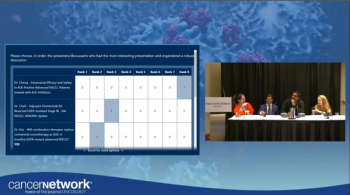
An outline of the debate, the speakers, and the basic guidelines to support the program.

Closing insights into managing EGFR-mutant NSCLC, from evolving treatment options and sequencing strategies to addressing unmet needs and the importance of comprehensive genomic testing.
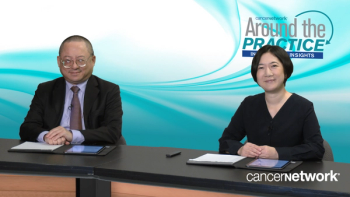
Dr Sai-Hong Ou discusses the future of treatment for non-small cell lung cancer with EGFR exon 20 insertion mutations, highlighting the complexity of these mutations and the need for precision treatments.

Unmet needs in EGFR exon 20 insertion lung cancer, emphasizing the importance of early identification, selectivity against wild type EGFR, CNS activity, and mechanisms of resistance.

Drs Misako Nagasaka, Sai-Hong Ou, Janellen Smith discuss the management of adverse events, such as infusion reactions and rash, associated with amivantamab treatment for patients with EGFR exon 20 insertion mutations.

Investigators are assessing BI 764532 in extensive-stage small cell lung cancer and other neuroendocrine carcinoma as part of the phase 2 DAREON-5 study.

Experts discuss the rapidly evolving treatment landscape for EGFR exon 20 insertion lung cancer, highlighting recent advancements in therapies, clinical trial results, and the quest for first-line treatment options, providing valuable insights into managing this unique patient population.

Sai-Hong Ou, MD, PhD, and Janellen Smith, MD, discuss the management of a patient with non-small cell lung cancer and an EGFR exon 20 insertion mutation who experienced a rash while on treatment with amivantamab; they highlight the importance of continuous treatment and potential considerations for this patient group.



